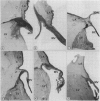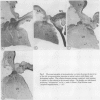Abstract
The mitral annulus is the point at which the atrial and ventricular walls meet the base of the mitral valve cusps. The suggestion that a variant of this arrangement termed "disjunction" was associated with prolapse of the leaflets prompted examination of the mitral atrioventricular junctions in seven normal hearts and six with prolapse owing to floppy mitral valves. A complete cord-like ring of connective tissue that encircled the atrioventricular junction and into which the three components were inserted at the same point was found in only one heart. The remaining hearts all showed a mixture of segments in which either the three components were inserted into a cord or simply met. Disjunction, defined as a separation of the atrial wall-mitral valve junction from the other component, the left ventricular wall, can occur both with and without a cord-like annulus. There was no significant difference in the number of segments around the left atrioventricular junction which showed disjunction in hearts with normal or prolapsing leaflets. The feature termed disjunction is an anatomical variation of the normal morphological characteristics of the left atrioventricular junction.
Full text
PDF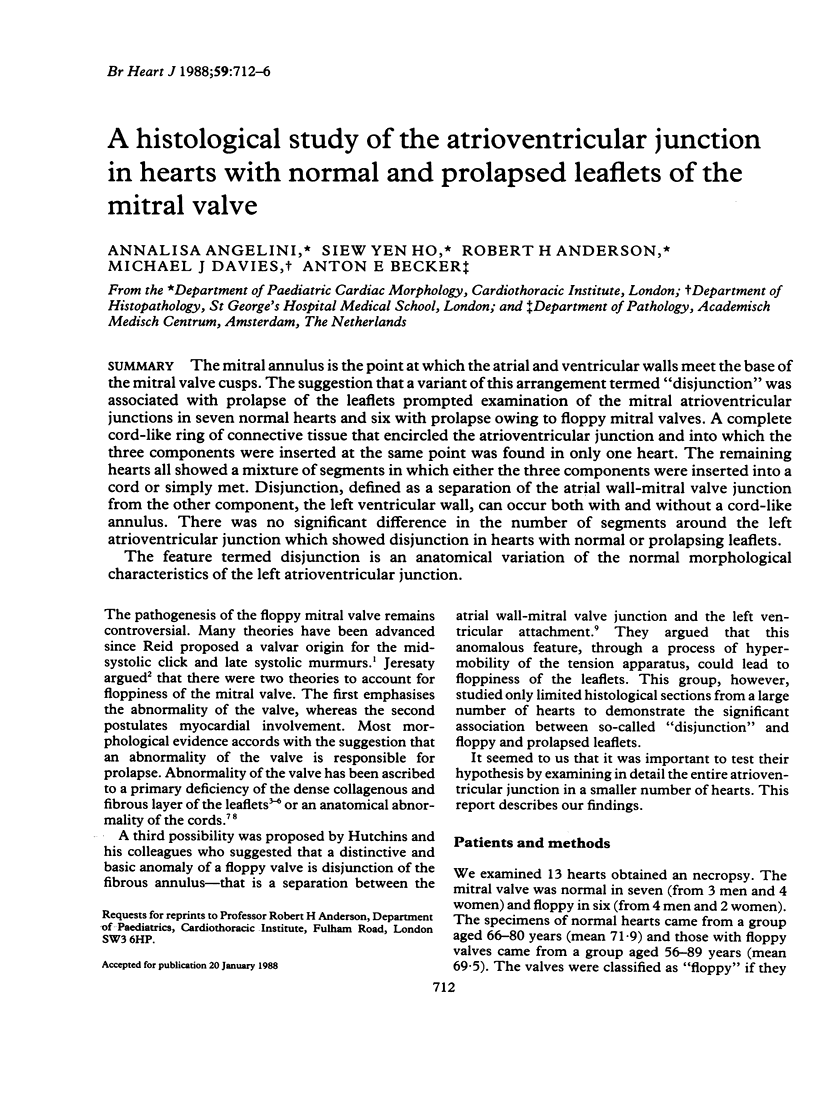
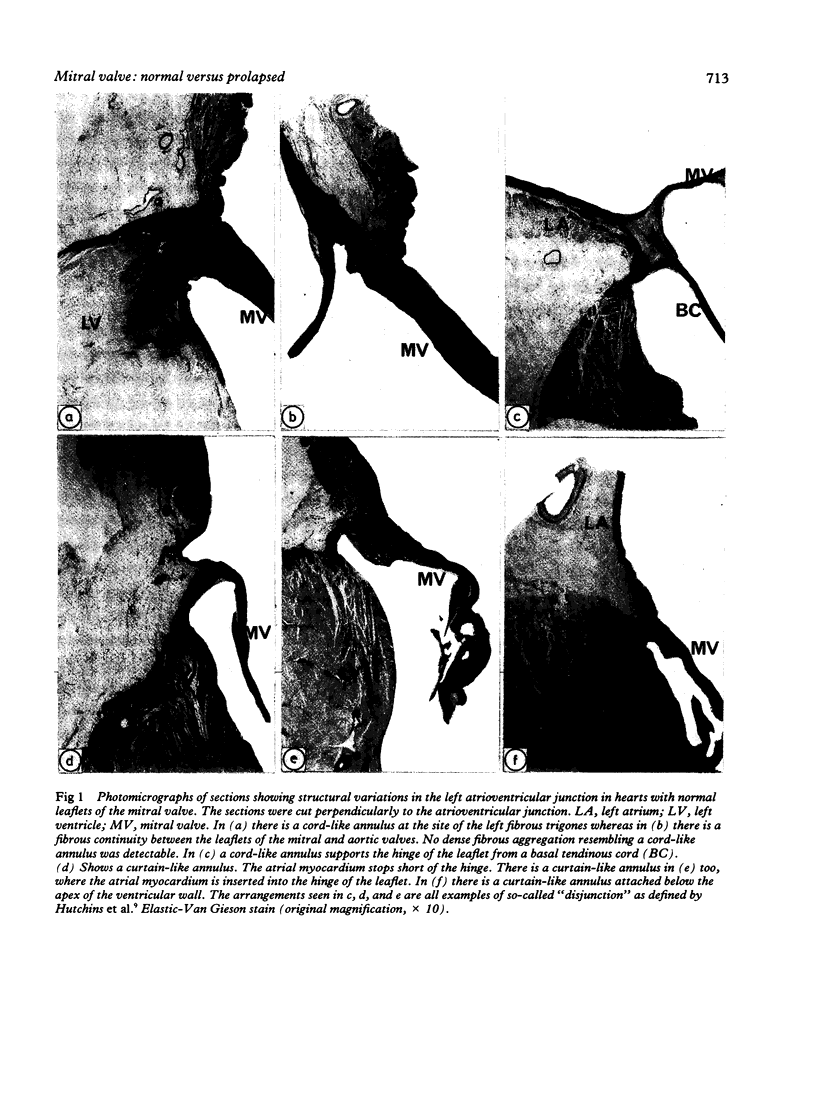
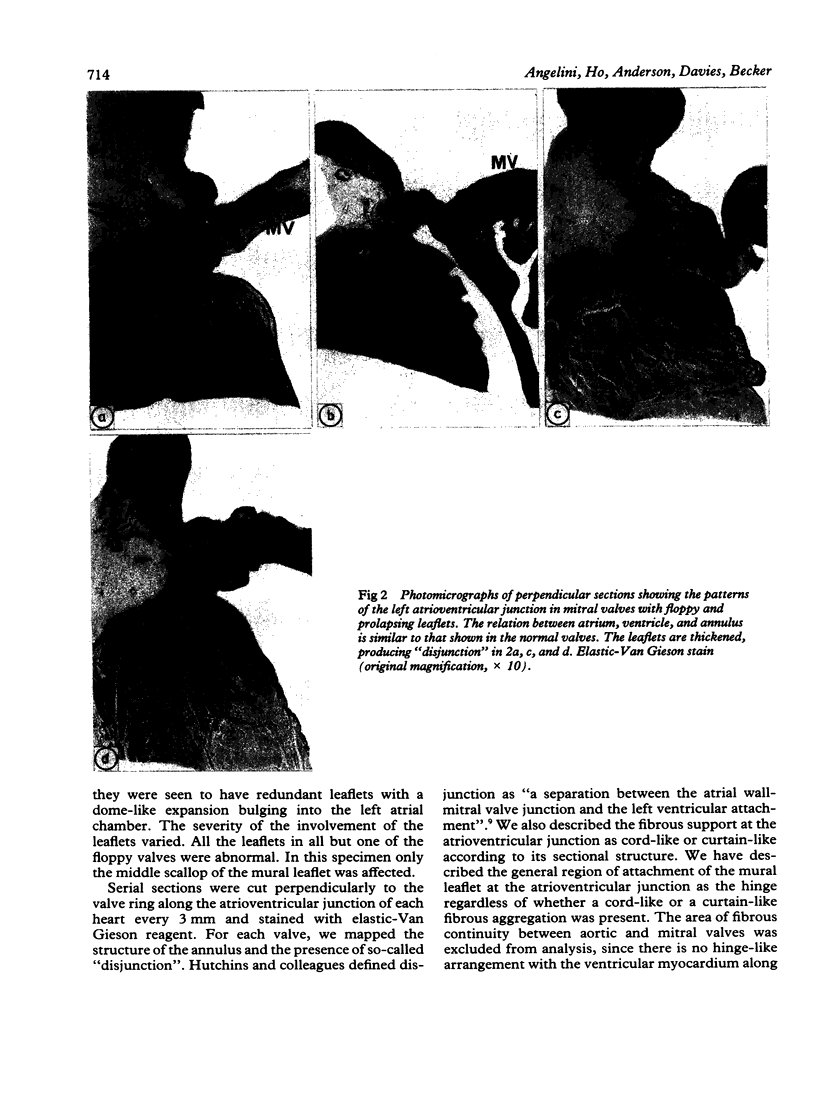
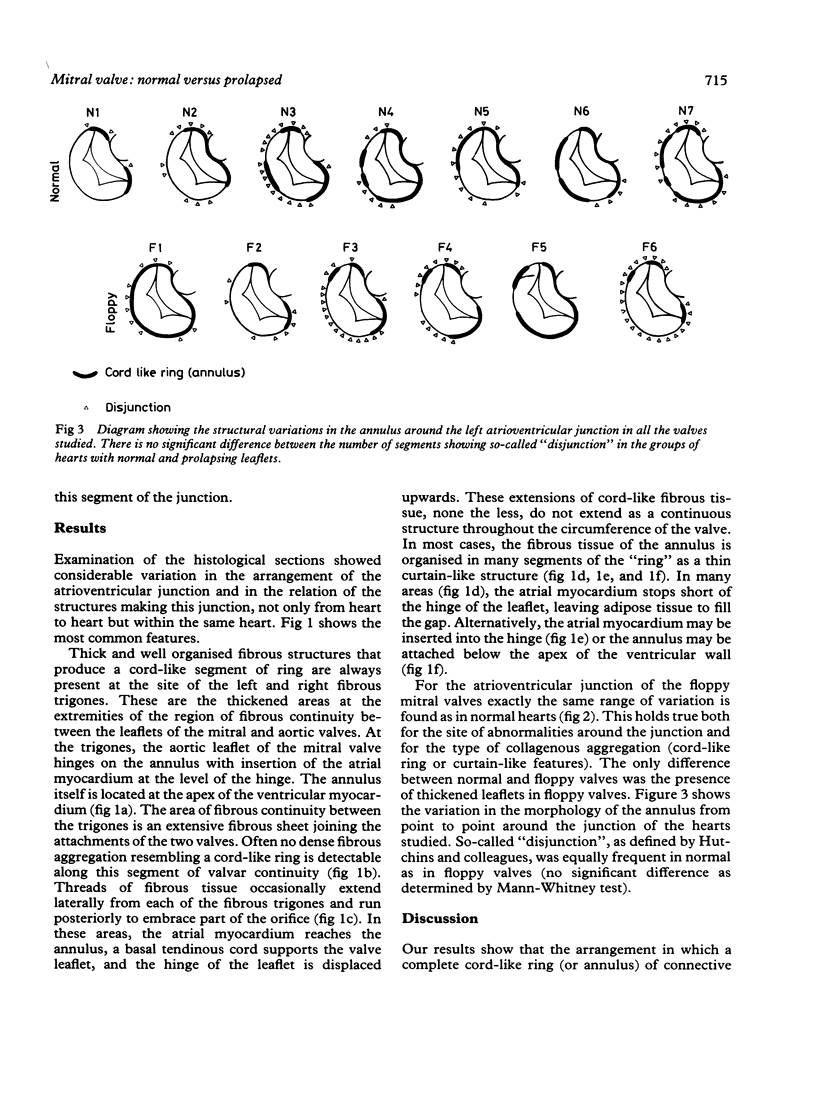
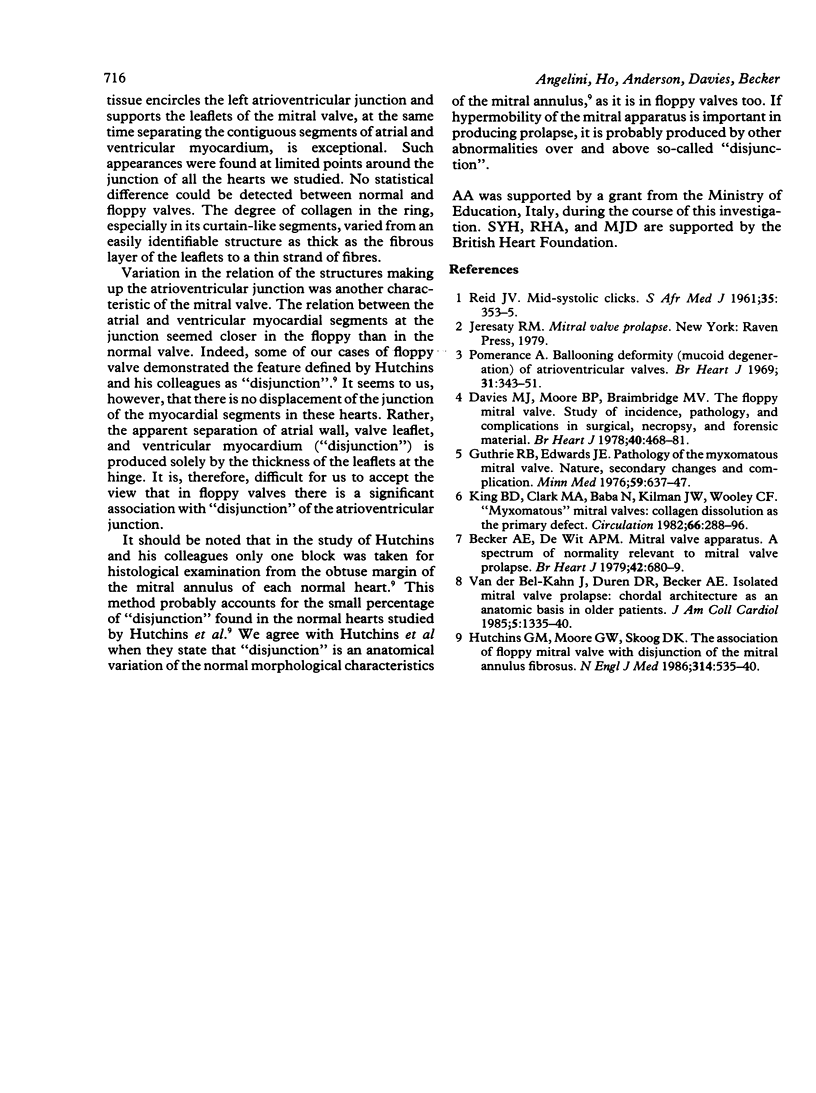
Images in this article
Selected References
These references are in PubMed. This may not be the complete list of references from this article.
- Becker A. E., De Wit A. P. Mitral valve apparatus. A spectrum of normality relevant to mitral valve prolapse. Br Heart J. 1979 Dec;42(6):680–689. doi: 10.1136/hrt.42.6.680. [DOI] [PMC free article] [PubMed] [Google Scholar]
- Davies M. J., Moore B. P., Braimbridge M. V. The floppy mitral valve. Study of incidence, pathology, and complications in surgical, necropsy, and forensic material. Br Heart J. 1978 May;40(5):468–481. doi: 10.1136/hrt.40.5.468. [DOI] [PMC free article] [PubMed] [Google Scholar]
- Guthrie R. B., Edwards J. E. Pathology of the myxomatous mitral value. Nature, secondary changes and complications. Minn Med. 1976 Sep;59(9):637–647. [PubMed] [Google Scholar]
- Hutchins G. M., Moore G. W., Skoog D. K. The association of floppy mitral valve with disjunction of the mitral annulus fibrosus. N Engl J Med. 1986 Feb 27;314(9):535–540. doi: 10.1056/NEJM198602273140902. [DOI] [PubMed] [Google Scholar]
- King B. D., Clark M. A., Baba N., Kilman J. W., Wooley C. F. "Myxomatous" mitral valves: collagen dissolution as the primary defect. Circulation. 1982 Aug;66(2):288–296. doi: 10.1161/01.cir.66.2.288. [DOI] [PubMed] [Google Scholar]
- Pomerance A. Ballooning deformity (mucoid degeneration) of atrioventricular valves. Br Heart J. 1969 May;31(3):343–351. doi: 10.1136/hrt.31.3.343. [DOI] [PMC free article] [PubMed] [Google Scholar]
- REID J. V. Mid-systolic clicks. S Afr Med J. 1961 Apr 29;35:353–355. [PubMed] [Google Scholar]
- van der Bel-Kahn J., Duren D. R., Becker A. E. Isolated mitral valve prolapse: chordal architecture as an anatomic basis in older patients. J Am Coll Cardiol. 1985 Jun;5(6):1335–1340. doi: 10.1016/s0735-1097(85)80345-4. [DOI] [PubMed] [Google Scholar]



